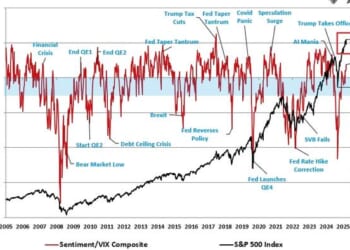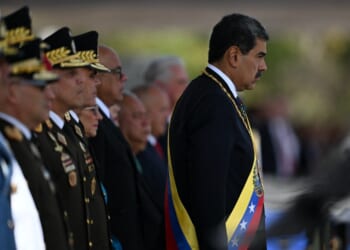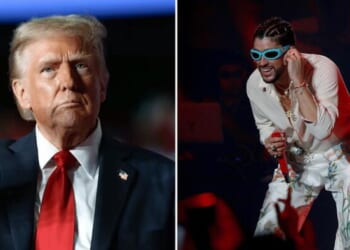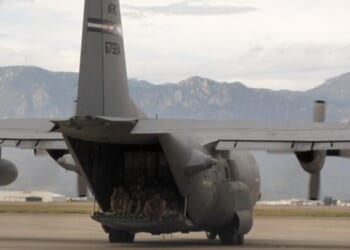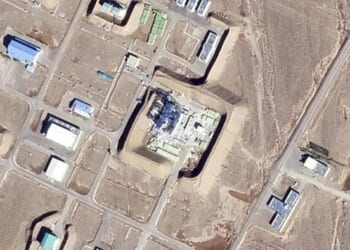When someone we think is bad dies, we usually don’t seem happy about it. As the old adage says, de mortuis non nisi bounum. But as an eminent classical scholar reminds us, the Latin adage is a mistranslation of a Greek adage which means “do not malign the dead.” It would be difficult indeed to malign Cheney, because the truth is bad enough: he was a monster of evil. He was a power-mad warmonger.
As Paul Dragu reminds us, Cheney was the architect of both Iraq wars, not only the war to oust Sadam Hussein after 9-11, but also the initial invasion under the first President Bush: “As vice president, Cheney was the loudest voice to advocate the invasion of Iraq. He broadcast the false narrative that Iraq had weapons of mass destruction with great zeal. But that wasn’t his first foray into Iraq, or the first time he led an invasion under a Bush. Cheney oversaw Operation Desert Storm in 1991 as secretary of defense under President George H.W. Bush.”
One reason Cheney favored war was that his financial interests were at stake. As Dragu puts it, “And in between Bush presidencies, when he wasn’t busy planning invasions into Iraq, Cheney worked as the CEO of Halliburton, one of the world’s largest oil companies.
“It just so happens that Iraq is considered one of the top five oil-rich countries. And if it were up to Cheney, American soldiers would’ve been sent into other oil-rich Middle Eastern nations. According to former British Prime Minister Tony Blair, Cheney had grand plans to deploy American soldiers all over the Middle East. Kenny writes:
“In his new book, A Journey: My Political Life, Former British Prime Minister Tony Blair recalls that Cheney wanted the United States to go to war not only with Afghanistan and Iraq, but with a number of other countries in the Middle East, as he believed the world must be ‘made anew.’ ‘He would have worked through the whole lot, Iraq, Syria, Iran, dealing with all their surrogates in the course of it — Hezbollah, Hamas, etc.,’ Blair wrote. ‘In other words, [Cheney] thought the world had to be made anew, and that after 11 September, it had to be done by force and with urgency. So he was for hard, hard power. No ifs, no buts, no maybes.’
“Journalist and author Robert Parry also suspected these wider ambitions, which had been kept out of earshot of the American public. He wrote:
There have been indications of this larger neoconservative strategy to attack America’s — and Israel’s —‘enemies’ starting with Iraq and then moving on to Syria and Iran, but rarely has this more expansive plan for regional war been shared explicitly with the American public.”
We learn from a Frontlines article that Cheney was the architect of a memo calling for continuing worldwide American hegemony. Here is the memo:
“Key Points/Excerpts:
“· The number one objective of U.S. post-Cold War political and military strategy should be preventing the emergence of a rival superpower.
“Our first objective is to prevent the re-emergence of a new rival. This is a dominant consideration underlying the new regional defense strategy and requires that we endeavor to prevent any hostile power from dominating a region whose resources would, under consolidated control, be sufficient to generate global power. These regions include Western Europe, East Asia, the territory of the former Soviet Union, and Southwest Asia.
“There are three additional aspects to this objective: First the U.S must show the leadership necessary to establish and protect a new order that holds the promise of convincing potential competitors that they need not aspire to a greater role or pursue a more aggressive posture to protect their legitimate interests. Second, in the non-defense areas, we must account sufficiently for the interests of the advanced industrial nations to discourage them from challenging our leadership or seeking to overturn the established political and economic order. Finally, we must maintain the mechanisms for deterring potential competitors from even aspiring to a larger regional or global role.”
· Another major U.S. objective should be to safeguard U.S. interests and promote American values.
“According to the draft document, the U.S. should aim ‘to address sources of regional conflict and instability in such a way as to promote increasing respect for international law, limit international violence, and encourage the spread of democratic forms of government and open economic systems.’
“The draft outlines several scenarios in which U.S. interests could be threatened by regional conflict: ‘access to vital raw materials, primarily Persian Gulf oil; proliferation of weapons of mass destruction and ballistic missiles, threats to U.S. citizens from terrorism or regional or local conflict, and threats to U.S. society from narcotics trafficking’
“The draft relies on seven scenarios in potential trouble spots to make its argument — with the primary case studies being Iraq and North Korea.
· If necessary, the United States must be prepared to take unilateral action.
“There is no mention in the draft document of taking collective action through the United Nations.
“The document states that coalitions “hold considerable promise for promoting collective action,” but it also states the U.S. ‘should expect future coalitions to be ad hoc assemblies’ formed to deal with a particular crisis and which may not outlive the resolution of the crisis.
‘The document states that what is most important is “the sense that the world order is ultimately backed by the U.S.’ and that ‘the United States should be postured to act independently when collective action cannot be orchestrated’ or in a crisis that calls for quick response.”
As Mike S. Rozeff tells us, the Iraq war was a perfect way to implement this memo: “Now that Dick Cheney is again in the spotlight and arguing with Democrats over Iraq, the dissertation with the above title is pertinent because it points to Cheney and Rumsfeld as the key instigators of the Iraq War aggression. It suggests their motives were to strengthen the power of the presidency and build up the U.S. military.
“The blog title is the title of a thesis available for downloading. In this 2011 work, author Edward C. Duggan argues that the decision to attack Iraq was done in pursuit of U.S. primacy:
“In my dissertation I argue that the invasion of Iraq was a part of a larger project by Vice President Dick Cheney and Secretary of Defense Donald Rumsfeld to reestablish the unconstrained use of U.S. military power after the defeat of Vietnam. The study presents the best evidence against the alternative explanations that the invasion of Iraq was the result of an overreaction to 9/11, the threat of Weapons of Mass Destruction, a plan to spread democracy in the Middle East, a desire to protect Israel or a plan to profit from Iraqi oil. The study also challenges the leading explanation among academics that emphasizes the role of the neoconservatives in the decision to invade. These academics argue that neoconservatives, such as Paul Wolfowitz and Richard Perle, successfully persuaded the American President, George W. Bush, and his Vice President, Dick Cheney, of the necessity to eliminate Saddam Hussein by winning an internal policy battle over realists, such as Secretary of State Colin Powell.”
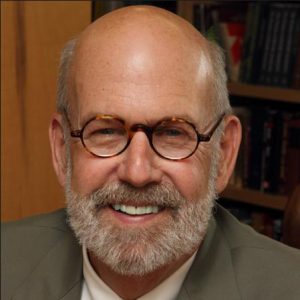 “I demonstrate that it was the primacists, not the neoconservatives, who persuaded the President to go to war with Iraq. Through historical process tracing, especially
“I demonstrate that it was the primacists, not the neoconservatives, who persuaded the President to go to war with Iraq. Through historical process tracing, especially
through a close look at the careers of the major policy actors involved and their public statements as well as declassified documents, I provide strong evidence that these leaders wanted to pursue regime change in Iraq upon taking office. The invasion of Iraq would extend the War on Terror, providing an opportunity to pursue their long-held policy of
strengthening the power of the presidency and transforming the military into a high-tech and well-funded force.”
Cheney favored torture and “enhanced interrogation techniques.” He said in a interview that he had no regrets about this: “Former Vice President Dick Cheney unapologetically pressed his defense of the CIA’s use of harsh interrogation techniques Sunday, insisting that waterboarding and other such tactics did not amount to torture and that the spy agency’s actions paled in comparison to those of terrorists targeting Americans.
“’Torture, to me … is an American citizen on his cellphone making a last call to his four young daughters shortly before he burns to death in the upper levels of the Trade Center in New York on 9/11,’ Cheney said on NBC’s ‘Meet the Press..”
No, I won’t be mourning Dick Cheney, and I suspect you won’t be either. Let’s do everything we can to counter his poisonous legacy and return to our traditional non-interventionist foreign policy, as defended by the great Murray Rothbard and the great Dr.Ron Paul!







